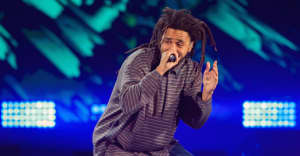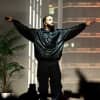A couple years back, and maybe still now, it was common to hear a rapper call their song or album a movie. In most cases, I think this meant: my song is so vivid and the scale of its production is so large, it will entertain and make money. But as someone who doesn’t make music but has talked to lots of people who have, I’ve also projected a different meaning onto this idea. Specifically, that many great songs actually come together just like movies do: with lots of personnel, unexpected turns, and high stakes.
The songwriting process may be opaque to many listeners, but it’s well documented. John Seabrook, a New Yorker staff writer, recently published a whole book of modern songwriting history. It’s all about “hit factories,” crews of people that worked hard to pin down techniques that always work. Ester Dean and Tricky Stewart; Dr. Luke and his engineers; the Swedish studio that made Max Martin practically a household name and produced hits for Ace of Base, Robyn, and the Backstreet Boys. I enjoyed the book, but was surprised at how completely it glossed over rap, as if rap music wasn’t also pop music, and there were no rap hits. Are Mike WiLL Made It and his fellow EarDrummers producers not a hit factory?
Perhaps historians like Seabrook overlook talents like Mike WiLL because, for years, rap music was understood as the project of genius poets with stories to tell. These artists were presumed to operate on their own, and the worth of their stories was measured by their authenticity. There are still a lot of brilliant, distinctive writers in rap music in 2015, but recently, there’s less of a stigma around working with other talents. Kanye West famously enlisted dozens of people—including three co-writers, 14 vocalists, and three french horn players—for “All of The Lights.” It’s widely considered a privilege to be one of the people flown out to god-knows-where to workshop songs for his upcoming album. These days, when we talk about a genius rap song, we’re talking about a lot of different things.
I’m thinking about all of this because in the wee hours of Wednesday morning, a tweet from Meek Mill’s Twitter account claimed Drake didn’t “write his own raps!” Later, Meek tweeted the name of Quentin Miller, an Atlanta-based artist who was credited as a writer on five of seventeen songs on Drake’s last release, If You’re Reading This It’s Too Late. Quentin puts out music on his own and as a part of the duo WDNG Crshrs; last week that group released a really nice song, “Poppn.” Its verses are easy and charming; a melodic section at the end shows great earworm potential. But that song doesn’t sound like “10 Bands,” not even a little bit, or any of the other fantastic Drake songs that Miller was a part of. If working with Quentin Miller made Drake better, it seems evident that Miller worked with him, not in place of him.
This shouldn’t come as a surprise—Drake has long praised his collaborators. In a 2014 Vibe cover story, Drake complimented Kenza Samir, a Toronto-based poet who was credited as a songwriter on “Connect,” from Nothing Was the Same. Drake explained their back and forth: “We just sit together and come up with the best way to say things… It’s cool to get another creative mind in there, just someone who’s thinking solely about the words and not the melodies and placement. It’s nice to read her poetry sometimes—I’ll take from that.” Years before that, he relied just as much, and just as happily, on help from his favorite producer. In a 2011 The FADER profile of Noah “40” Shebib, writer Nick Sylvester described how the producer and Drake conspired together in the studio. “Shebib knows Drake’s ‘sweet chords’ and ‘sweet notes.’ And Drake feels comfortable taking chances with his singing because he knows 40 will always make him sound good,” he wrote. “So much of their music is born of late-night improvisation and a kind of unguarded silliness you can only tap into when you feel truly one hundred percent at ease with another person. Many Drake songs, more than you’d think, are first takes.”
And Drake’s collaborators have spoken highly of how he works, too. In an interview with The FADER’s Ruth Saxelby, Sampha marveled at Drake’s ability to turn lyrics into a song quickly: “I started playing and singing, and Drake liked the bounce of it and started writing lyrics on his BlackBerry. It was a really surreal thing, watching him go into the booth and then start to record his vocals. I was like, ‘This sounds like a record,’” he said. In a FADER GEN F profile, producer Vinylz compared Drake’s OVO squad to the San Antonio Spurs, a basketball team known for placing the group before the individual. “Me, Boi-1da, and all the OVO people—we call ourselves the Spurs,” he said. “The Spurs are not a team that people look at, but they always win. And they’re still so humble. That’s how we all move.”
How you a ghost writer when you credited? You a nigga with a job & a publishing split.
— Vince Staples (@vincestaples) July 22, 2015
I’m not here to draw a hard line about what a real rap verse is, or what authentic rap music is—just to say that personally I find no scandal in Quentin Miller’s credited contributions to Drake’s songs. Over the past few years, the walls between the street and the internet, the underground and the mainstream, and different genres have vaporized. With this, the audience for rap has grown, and so the commercial stakes of many rap songs are now similar to the stakes of pop hits. Why wouldn’t rap artists make their movie with the best crew?
Thumbnail image: JIM JOE / Instagram


